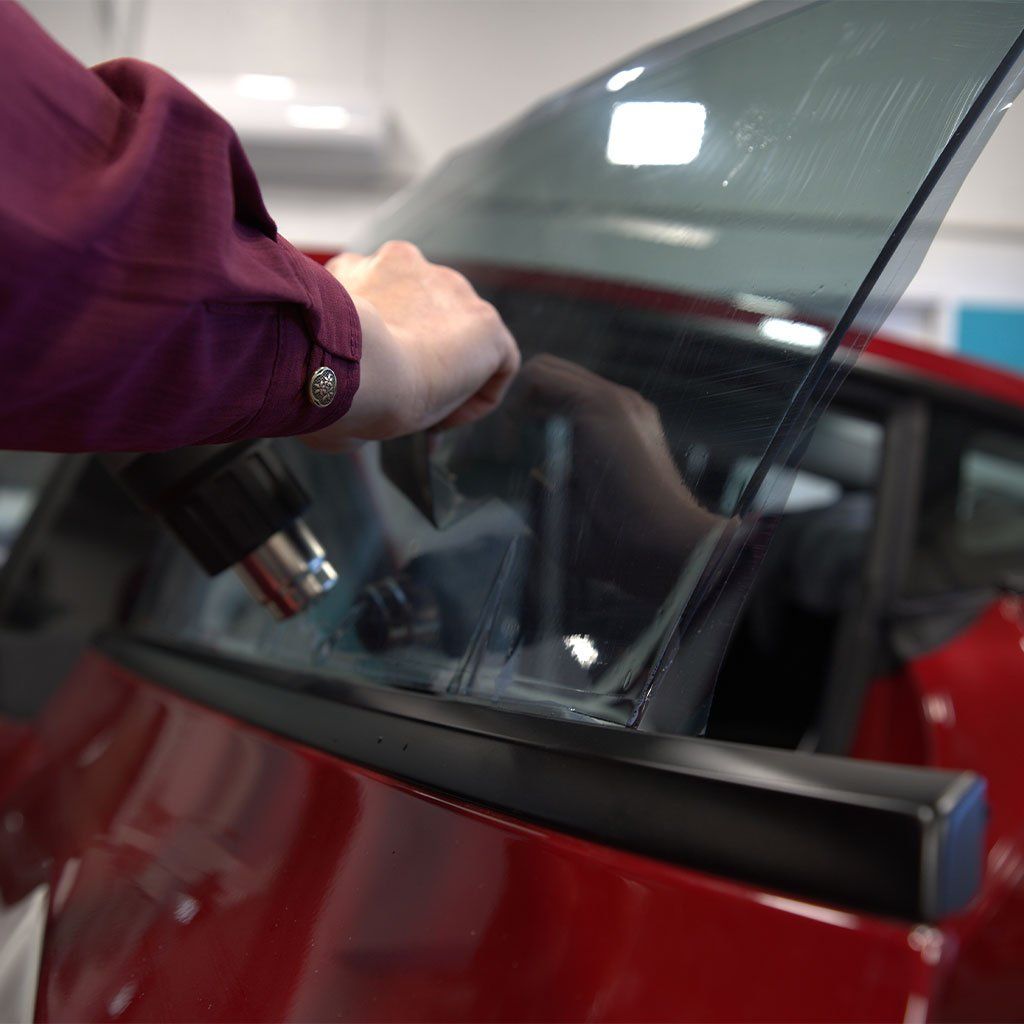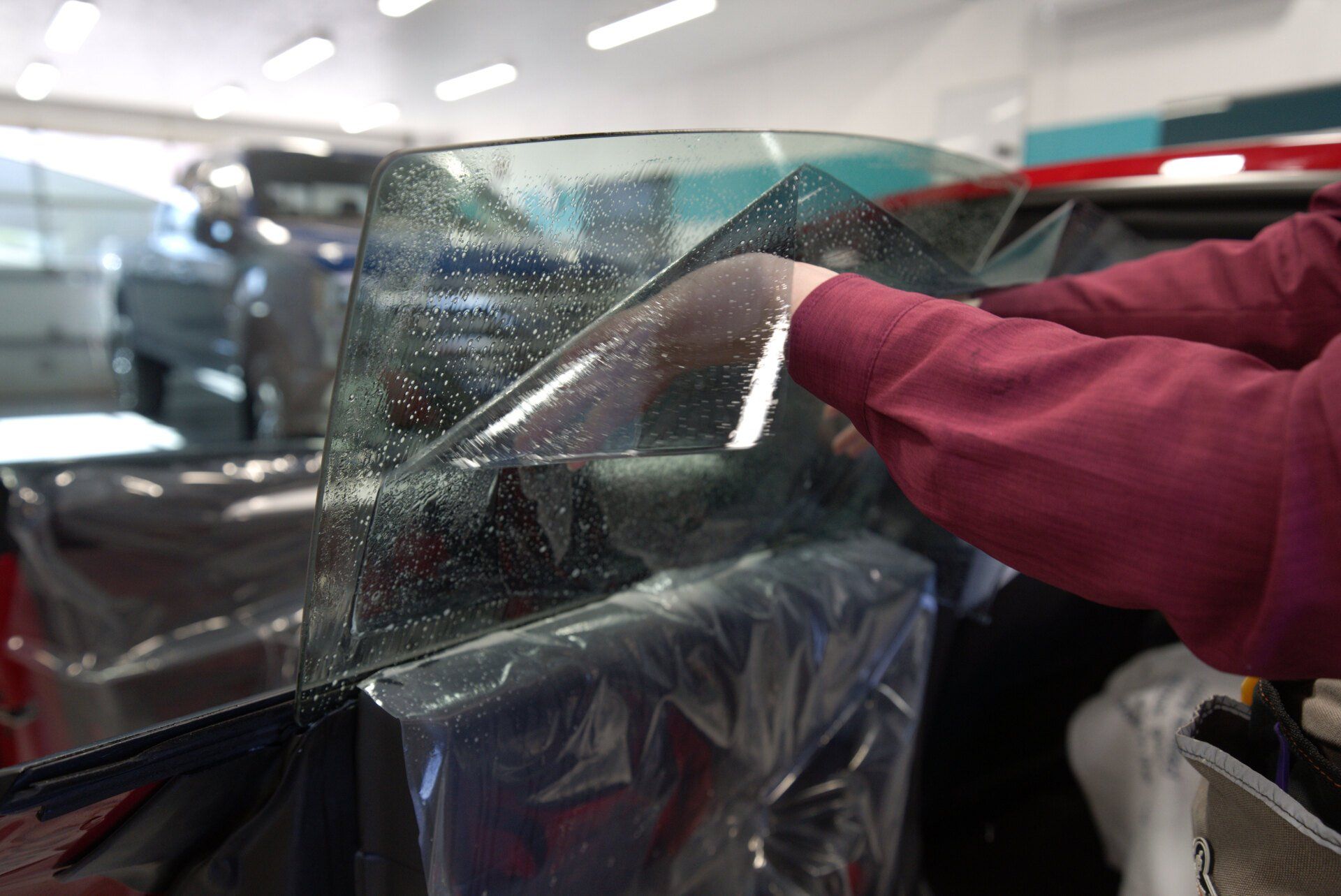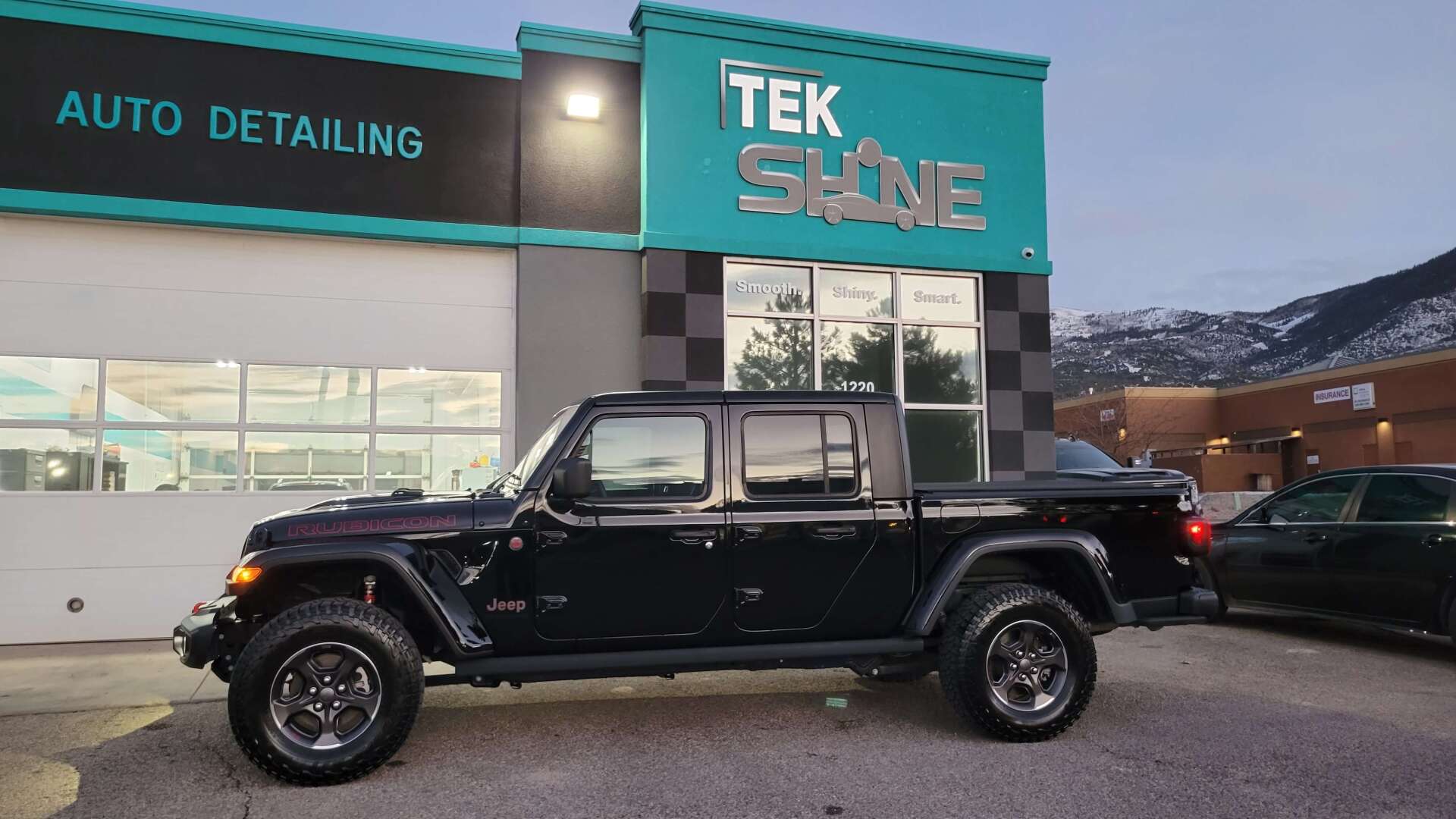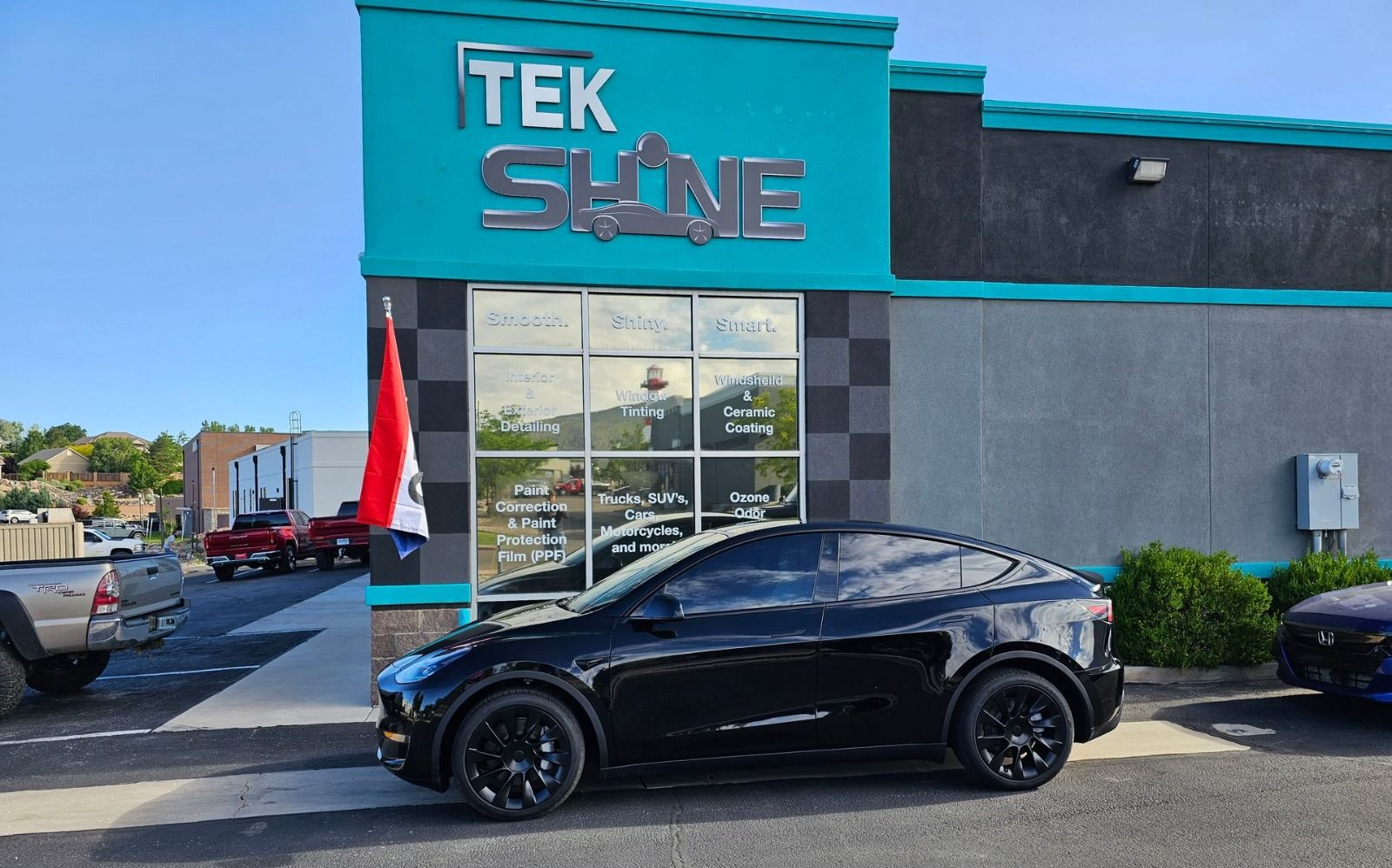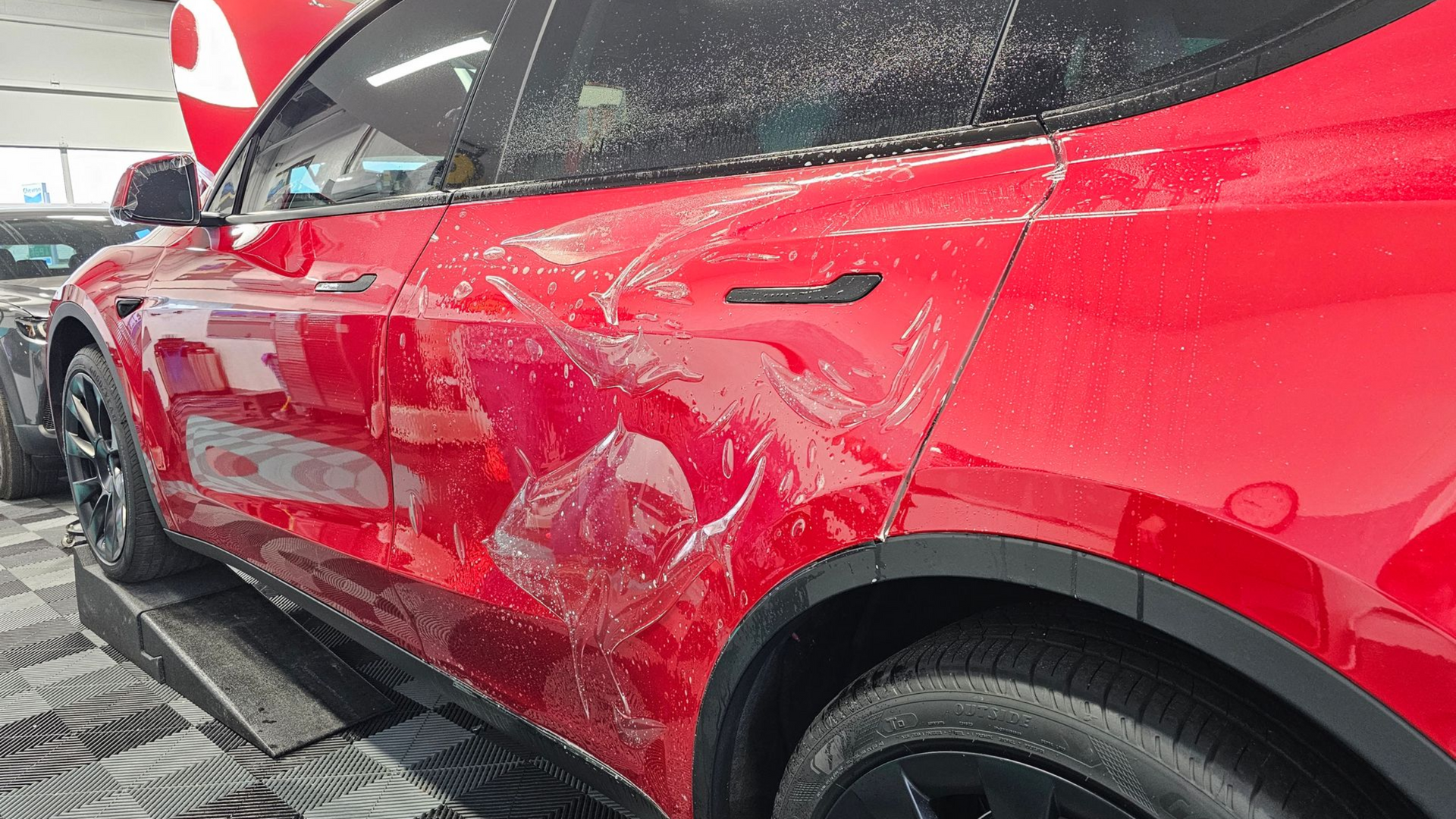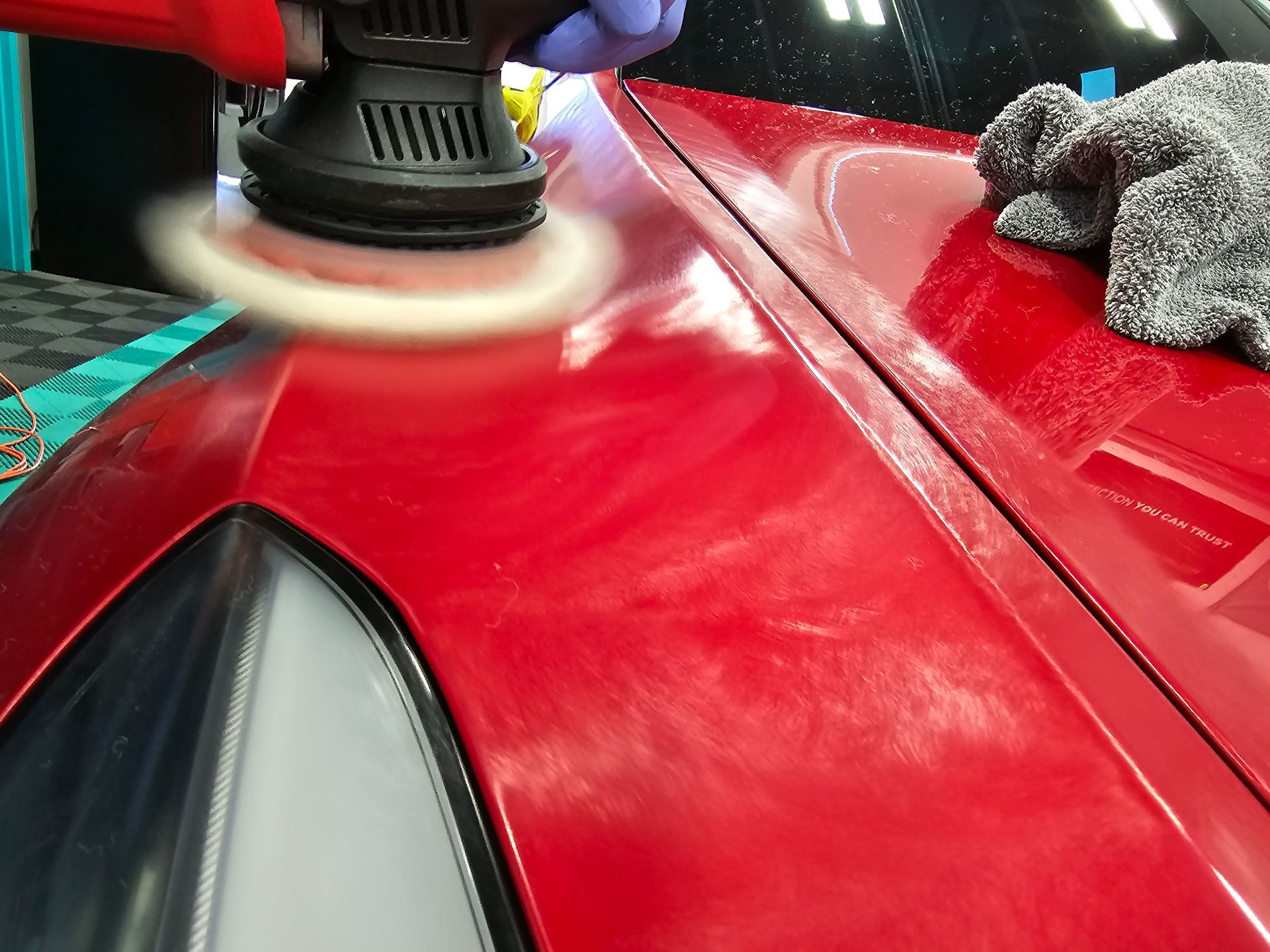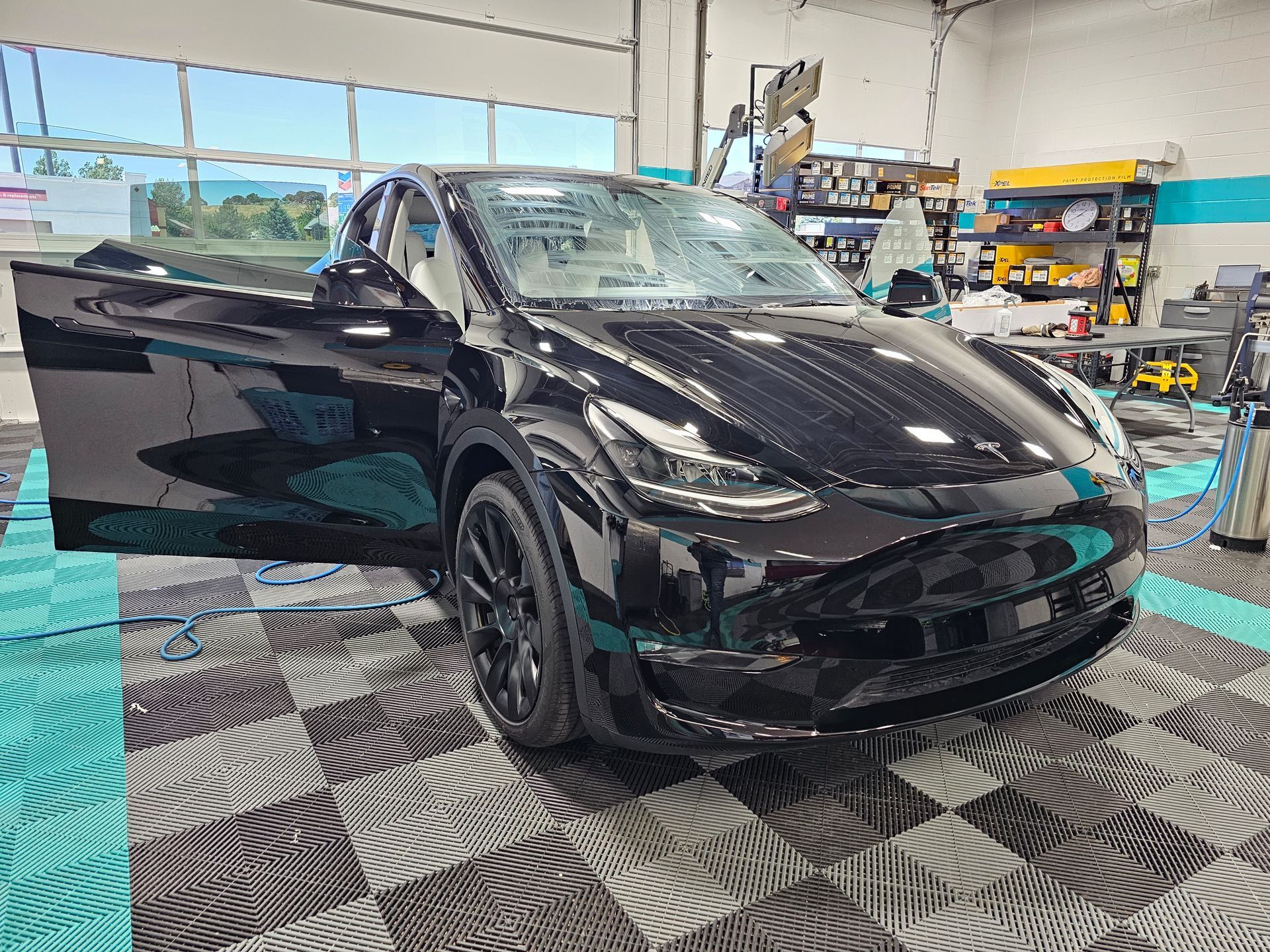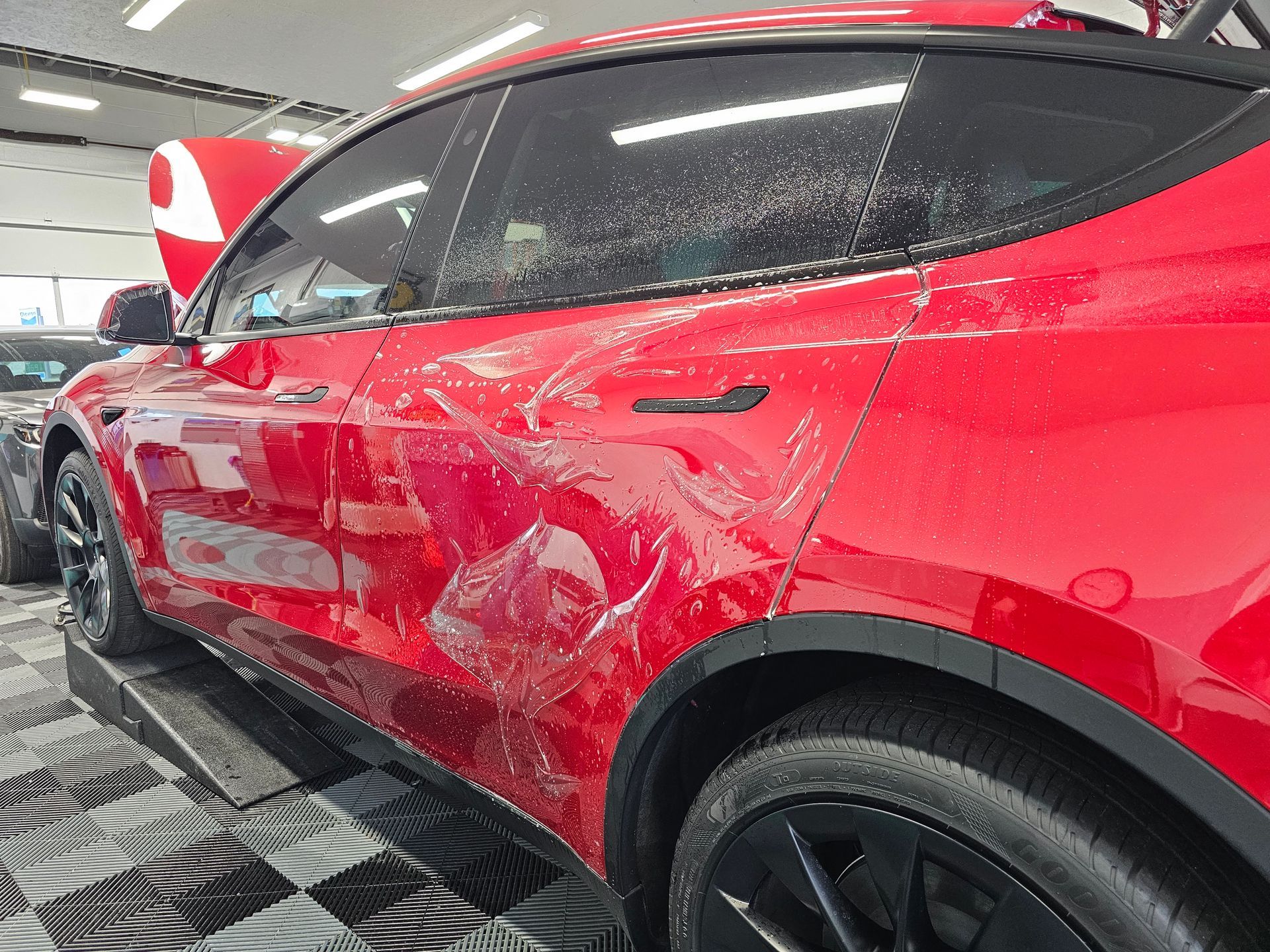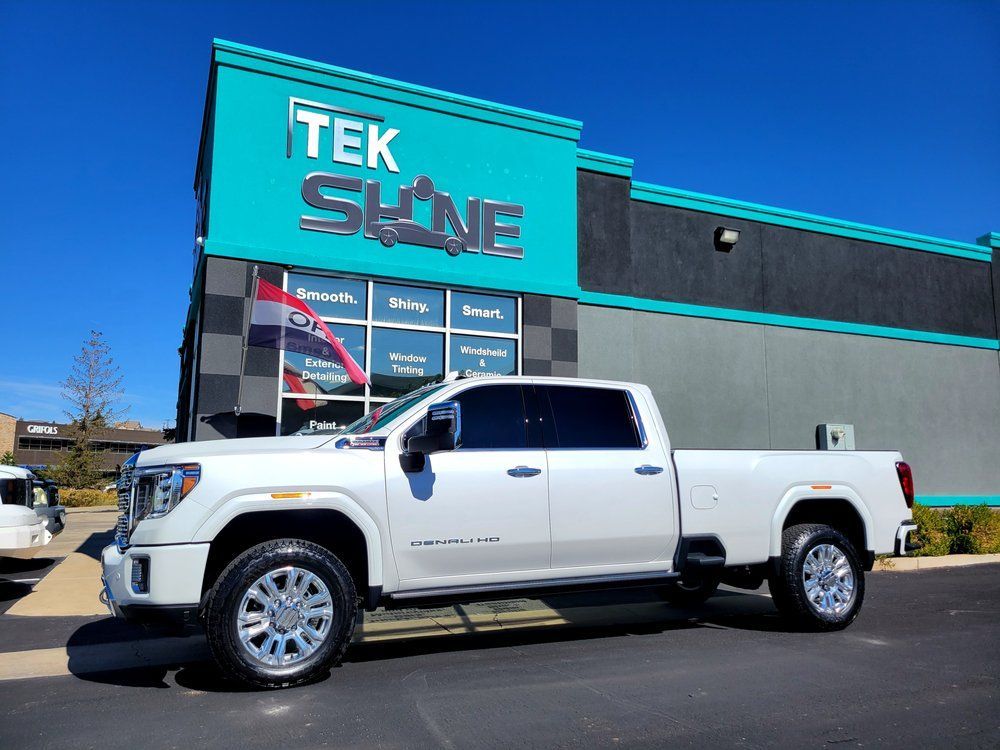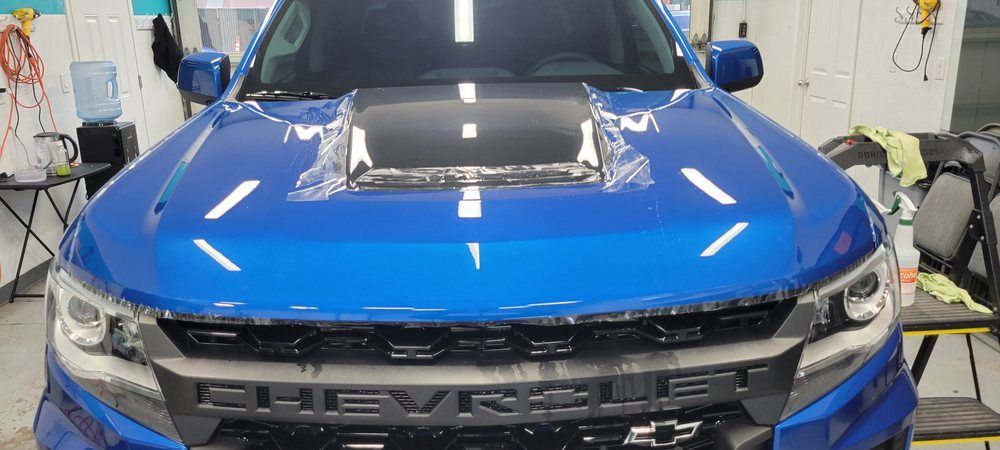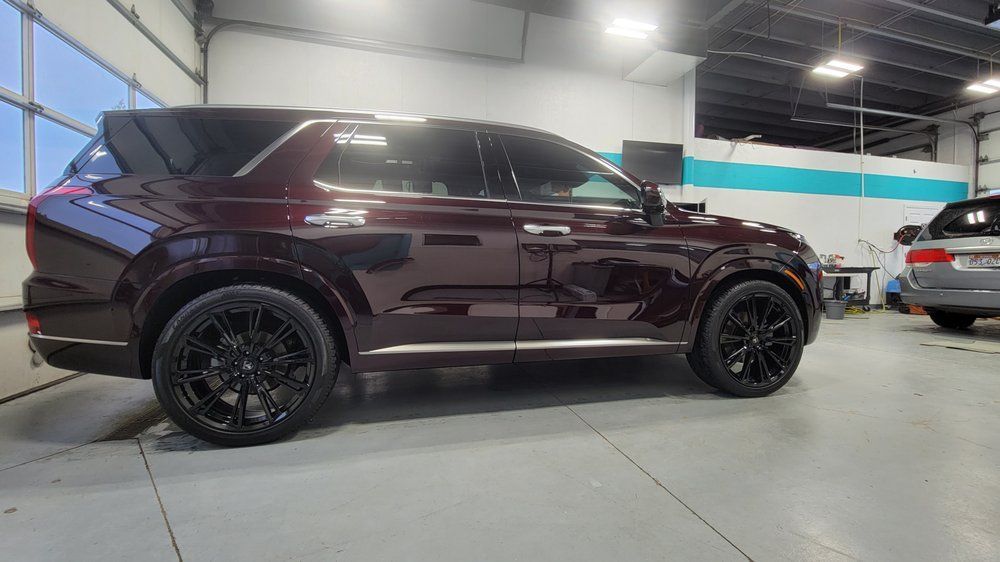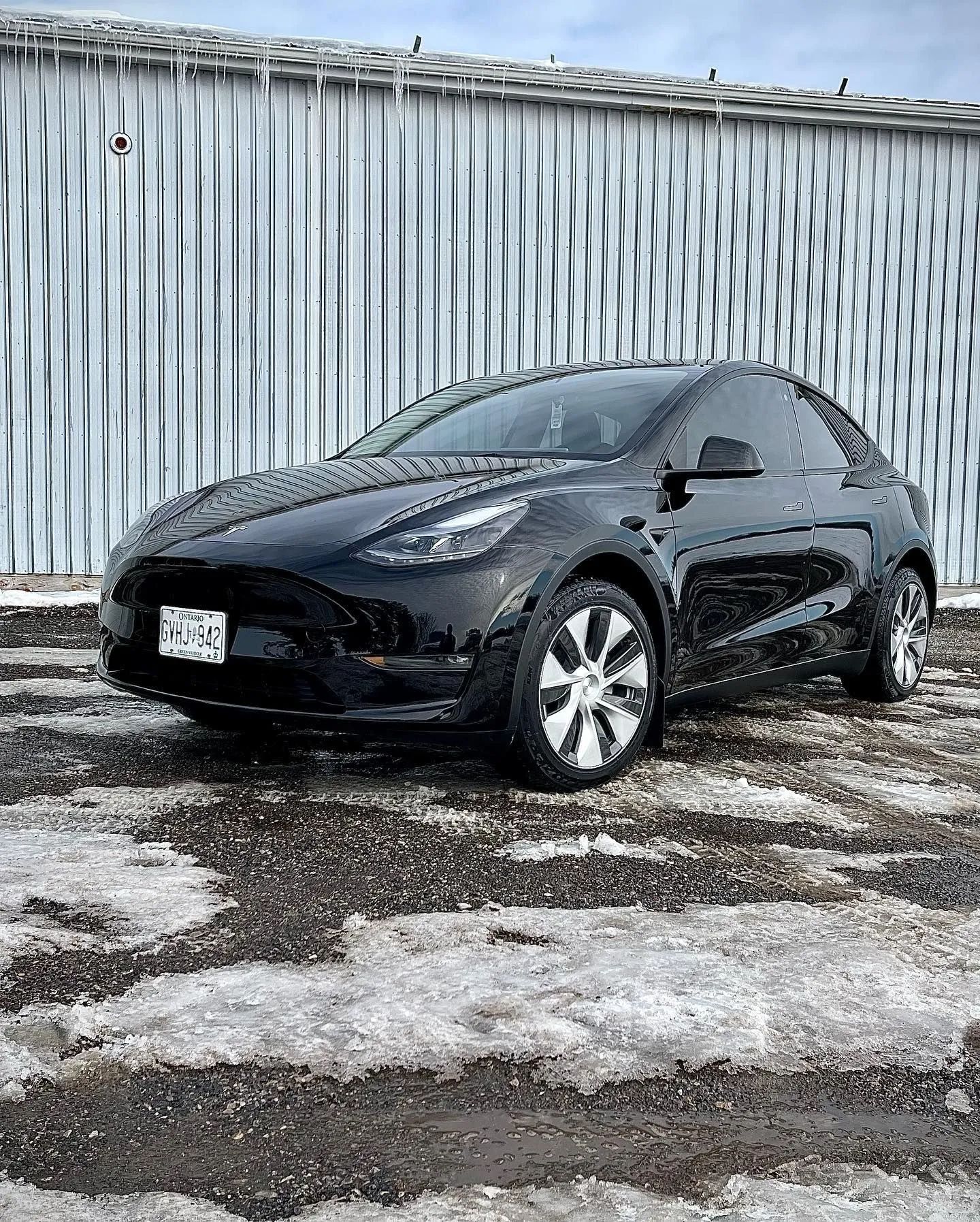Common Myths About Window Tinting Debunked: Discover the Facts
Many people believe window tinting is just for cars. This common misconception often prevents them from exploring their full potential. Modern window tinting offers significant benefits for homes and workplaces in addition to enhancing the look of your vehicle. Imagine reducing your summer energy bills or ensuring your home office stays glare-free without heavy curtains.
Our team has extensively researched these myths, consulting experts and reviewing scientific studies to provide you with clear, factual information. Surprisingly, many schools even use window tinting to protect students from harmful UV rays. This demonstrates how misled we can be about its versatility. Let's dive into these myths and uncover the truth behind window tinting.
Common myths about window tinting include the idea that you can tint your windows as dark as you want, which is untrue. Laws vary by state regarding allowable tint darkness. Additionally, many believe that cheap tints offer similar quality as premium options; however, premium films typically last much longer and provide better protection against fading and bubbling.
Myth 1: Window Tinting is Only for Cars
It's time to put this myth to rest by acknowledging that window tinting has a broad range of applications across different settings. Residential homes and commercial buildings are increasingly choosing to invest in window films for various compelling reasons.
For homeowners, the advantages can be significant. Window tinting helps keep energy costs down by blocking excessive heat during sweltering summer months while keeping warmth from escaping in winter. Imagine having large glass windows or a cozy sunroom where you can still enjoy the sunlight without your heating or cooling system constantly working overtime.
It’s particularly effective in minimizing reliance on HVAC systems—something we all appreciate when the utility bill arrives at the end of the month. Many modern homes, designed with expansive windows, benefit from window films that not only contribute to comfort but also protect furnishings from fading due to UV exposure. This is crucial for any homeowner looking to maintain the integrity of their interiors while still taking advantage of natural light.
Understanding the versatility of window tinting opens up further discussion about its potential drawbacks and misconceptions that may arise concerning its reflective qualities. Let’s explore the next common myth surrounding this protective enhancement.
Myth 2: Tinting Causes Windows to be More Reflective
Many people fear that adding a tint will turn their windows into a shiny mirror, making it difficult for them to see outside or for others to see in. However, modern advancements in window tint technology completely counter this myth. Advanced window films, meticulously engineered with anti-reflective properties, bridge the gap between aesthetics and functionality.
Understand that the best tints maintain visibility rather than obscure it when choosing a tint. High-quality films minimize glare and enhance driving comfort by reducing harsh sunlight. This attribute is particularly beneficial during blazing summer days when natural light can be overwhelming. These films block up to 99% of harmful UV rays, according to studies from the International Window Film Association, while keeping reflectivity low and promoting extensive visibility.
In fact, when we consider visibility at night, the narrative shifts favorably towards tints. Quality tint films improve nighttime driving conditions rather than impede them. They promote better overall safety by reducing the glare from oncoming headlights. For instance, drivers report enhanced clarity due to reduced eye strain from bright lights, debunking the misconception that tint merely exacerbates reflection issues.
As we delve deeper into the misconceptions surrounding these enhancements, let's examine how some individuals perceive these films as merely an aesthetic choice, rather than a functional necessity.
Myth 3: Tinting is Just for Appearance
It's simple to understand why some might see window tinting as a luxury reserved for stylish cars and chic homes. However, this perception overlooks the numerous practical benefits that make window tinting much more than a mere visual upgrade.
For instance, consider heat reduction. Tinted windows can drastically reduce the amount of heat that enters your vehicle or home—an essential feature in areas where temperatures soar. By regulating the interior climate, window tints reduce reliance on air conditioning systems, ultimately leading to significant energy savings.
Beyond energy efficiency, another important aspect is the health implications of UV exposure.
Health and Safety
Some still maintain that tinting serves only cosmetic purposes. Yet, numerous studies illustrate that high-quality window films possess the capacity to reject up to 99% of harmful UV radiation. This is not just a minor detail; it significantly reduces the risk of skin cancer and various UV-related health issues.
To put this into perspective, untreated windows expose occupants to harmful rays that can elevate skin cancer risks by approximately 10%, according to the Skin Cancer Foundation. So, while aesthetics play a part, they shouldn't overshadow these critical health benefits.
The bottom line is clear: investing in quality window tinting isn't simply an aesthetic choice—it's a proactive step towards safeguarding both your finances and your health. Whether it's beating the sweltering heat or shielding yourself from harmful UV rays, tinted windows perform a dual role that's difficult to dispute.
As we explore further, we'll uncover misconceptions surrounding the effectiveness of window tinting and examine how it truly measures up against common concerns.
Myth 4: Window Tinting is Ineffective
Many people believe that window tinting does little to improve the interior comfort of a vehicle or building. This misconception arises from a lack of understanding about the real, impactful benefits quality window tints offer. A wealth of studies and personal accounts demonstrate just how effective window tinting is at enhancing comfort levels, promoting energy efficiency, and improving safety.
Critics often downplay its advantages, suggesting they are minimal. Research indicates a different story. Specifically designed to combat solar heat gain, high-quality window tints significantly contribute to maintaining a comfortable internal environment. The proper film can significantly minimize incoming heat and provide immediate relief from overbearing sun exposure, especially during hot summer months. Users have noted an increase in comfort and a decrease in their energy bills.
For example, a study by the National Renewable Energy Laboratory highlights that window tints can effectively lower interior heat levels by up to 60%. Imagine stepping into your car or home on a scorching day and feeling refreshing coolness rather than an oppressive wave of heat. That statistic underscores the potential impact of selecting the right type of window film.
Beyond temperature control, investing in quality window tinting offers additional benefits:
- Enhanced Privacy: Tinted windows obscure visibility from outside while still allowing natural light in, providing an added layer of security.
- Increased Shatter Resistance: Quality films bond with glass, making it harder to shatter upon impact. This durability protects occupants from injuries caused by broken glass.
- Glare Reduction: Tinted windows enhance visibility and reduce eye strain by minimizing glare on screens or reflective surfaces, whether driving or enjoying time indoors.
A practical example comes from law enforcement agencies that often use window tints. They seek privacy for sensitive equipment inside their vehicles, prioritizing reducing glare that could endanger officers’ ability to react efficiently.
Understanding the many advantages of window tinting allows one to delve deeper into another aspect closely related to these enhancements—how costs vary and what factors influence these variations.
Myths About Window Tinting Costs
One common concern is that window tinting is prohibitively expensive, but the reality is quite different. The initial costs may raise eyebrows; however, understanding the long-term financial benefits can change your perspective entirely.
If you were to invest in a professional installation for your vehicle, you'd find prices typically range between $100 and $400. While that might feel steep at first glance, consider the myriad ways you'll recoup those expenses—energy savings and enhanced longevity of your vehicle's interior are just the beginning.
Window tints offer more than aesthetic enhancements. They also protect against harmful UV rays and help regulate internal temperatures, translating into considerable savings on fuel or energy bills over time. A well-applied film not only keeps your car cool during hot months, but it can also significantly reduce air conditioner usage.
Investing in high-quality tints not only yields better overall performance but often comes alongside extended warranties that alleviate concerns about maintenance costs. By considering both short-term investments and long-term returns, you’ll quickly realize that window tinting is more than just an expense; it’s an investment in comfort and efficiency.
With an understanding of the financial implications firmly established, let’s explore expert insights that will further elevate your knowledge around this topic and optimize your tinting decisions.
Professional Advice on Window Tinting
Consulting professionals can genuinely enhance your window tinting experience. Not only do they offer invaluable insights derived from years of hands-on experience, but they also help ensure that the final results meet your expectations and adhere to legal requirements.
Mark Patterson, an experienced installer at Inspector's Auto Appearance in Flagstaff, AZ, perfectly highlights this: "Choosing an experienced technician ensures proper application and longevity of the tint. Many DIY attempts end up bubbling or peeling prematurely." This statement underscores the importance of engaging someone with expertise, as improper installation can lead to unsightly issues that are both frustrating and costly to rectify.
In addition to their technical knowledge, professional window tinters often provide warranties on their work. This means you gain additional assurance regarding the performance and durability of your chosen film. Warranties offer peace of mind, ensuring that if any issues arise within a specified period, you have recourse for repairs or replacements without incurring extra costs.
Lastly, seeking professional advice extends your resources beyond mere installation. If you're looking for tips on maintenance or how to handle minor repairs over time, these industry professionals can provide you with essential information that will help prolong the lifespan of your tint.
Visit our website for more expert tips and detailed articles about
window tinting and installation guides. Our resources have been designed to equip you with the necessary knowledge to navigate your window tinting journey effectively. Don't hesitate to reach out for personalized assistance by calling (435) 383-8663.

